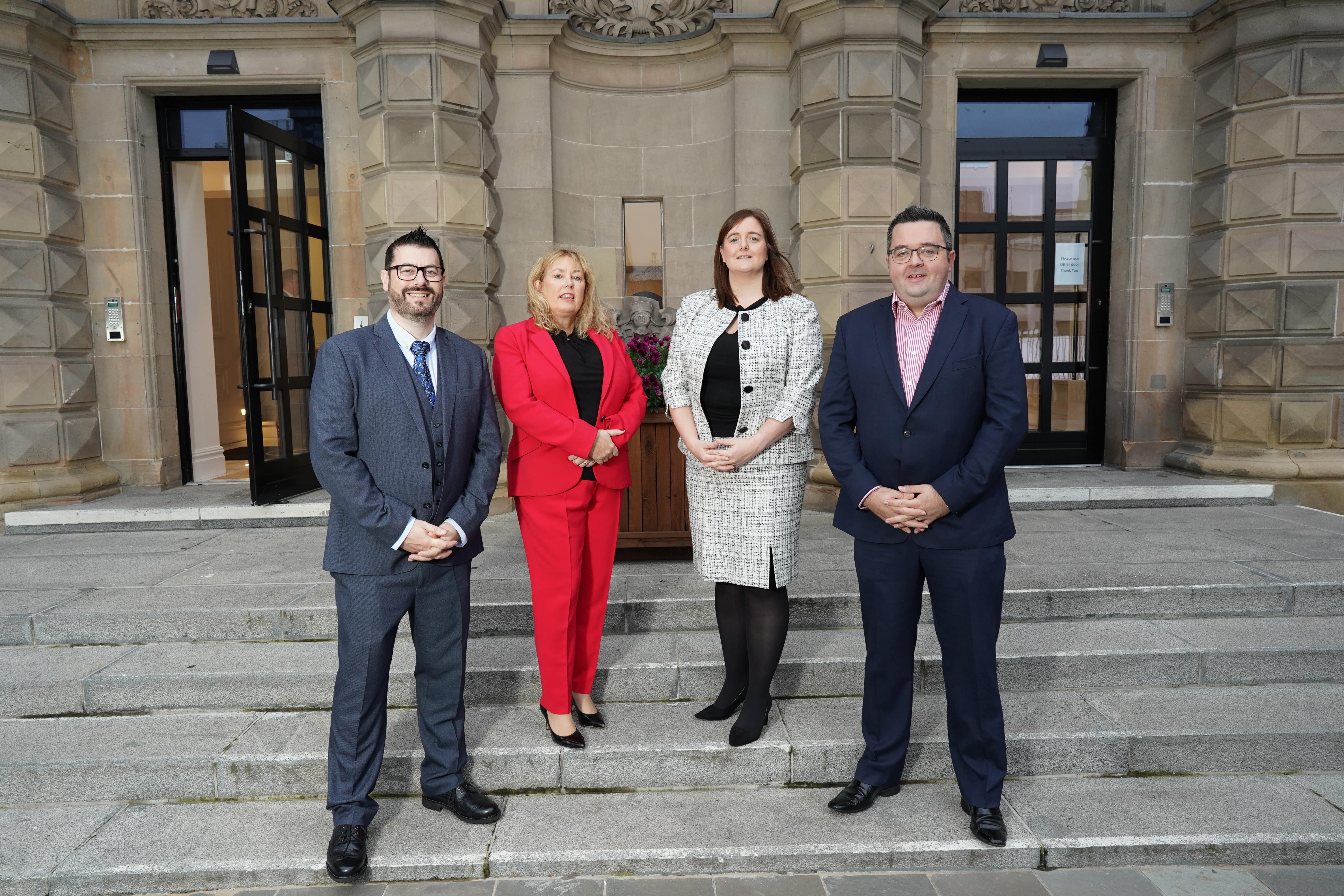Northern Ireland businesses briefed on day-to-day workings of Windsor Framework
Key measures of the Windsor Framework came into effect for Northern Ireland on Sunday, including the green/red lane system for the movement of goods.

Northern Ireland businesses have been briefed on the day-to-day workings of the Windsor Framework as key measures go live.
A number of aspects of the post-Brexit agreement came into effect for Northern Ireland on Sunday, including the green/red lane system for the movement of goods and “not for EU” labels.
Goods coming into the region which are travelling to the Republic of Ireland or elsewhere in the EU will use the conceptual “red lane”, which includes customs declarations and some checks.
Goods to be sold in Northern Ireland will use a notional “green lane” with minimal paperwork and no checks.
On Wednesday morning, business leaders gathered at the historic Customs House in Belfast to discuss the realities of working with the framework.
Delegates were briefed, at the event hosted by business advisory firm BDO NI, by customs experts from Great Britain, the Republic of Ireland and Northern Ireland.
The delegates included those involved with the retail, agri-food, and manufacturing sectors.
BDO NI Tax Partner, Lorraine Nelson said despite the “noise” and politics around post-Brexit arrangements, Northern Ireland businesses have been “getting on with it”.
“There has been a lot of noise surrounding Brexit over recent years, we have had the NI Protocol and now this year, the Windsor Framework,” she said.
“However, the practicalities and impact on day-to-day business here is usually overshadowed by the political implications and reaction.
“Businesses here have a strong history of ‘just getting on with it’ and this has been the case over the last number of years, too.”
She said in Northern Ireland there is a “noticeable air of business confidence”, which is at least partly fuelled by the “certainty and opportunities that come with the Windsor Framework”.
“Any alterations will have repercussions on the necessary procedures and paperwork and companies are seeking clear guidelines considering what has been a notably intricate and shifting situation here in Northern Ireland,” she said.
“We have organised this event to collate the information available and provide a one-stop-shop to help business leaders to understand the changes, ensure they are fully compliant and inform both their customers and suppliers”.
Delegates were also briefed on how the framework affects the Irish market, including the necessary procedures and measures that companies must have in place for operations across the land border, sea border and Europe.
Carol Lynch, BDO partner, customs and international trade Ireland, said there is a real opportunity for businesses located in Northern Ireland and for future investment, with dual access to both the UK and EU markets” and for GB businesses as a “gateway to Europe’”.
“These new red and green lane arrangements are not a case of a quick ‘tick box and drive on through’, all sectors and indeed each business will be impacted differently,” she said.
“There are many variables, such as types of customers, supply chain routes, regulatory requirements will determine the level of compliance and paperwork because of these new changes.”
James Woods of GM Marketing (Ireland) Ltd, a distribution company, operating across the island of Ireland, GB, Europe and beyond, said there has been a lack of clarity around labelling.
“At GM Marketing we represent over 40 household brands in the Irish market, including manufacturers in GB and from across Europe,” he said.
“Since Brexit we have fought hard to keep these brands in the Irish market, North and South, maintaining choice for consumers here.
“This has been an uphill struggle, with ever changing challenges and new obstacles placed in our way.
“Lack of clarity around labelling, and precisely what green and red lane access will look like, continues to frustrate these brands, with many turning to us daily for advice.
“Much more of this uncertainly, along with additional costs, will without out doubt lead to some of these brands making the difficult decision to exit the market here. At GM we remain optimistic and want to shift our focus to taking advantage of the opportunities for us and our brands.”
Bookmark popover
Removed from bookmarks